Jackie Benedict takes out her new Indian status card and turns it over in her hands.
Normally a new status card is not something she’d get excited about.
“They have us numbered by our status cards, they have registered as Canadian, and a lot of people don’t like that,” says Benedict of her fellow Mohawks.
But this card provides a new valuable service.
Now the woman from Akwesasne is able to cross the U.S. and Canada border that criss-crosses her territory faster.
“It’s like having a passport, with the readable zone on the bottom, that’s what they scan,” explain Benedict, pointing to the seemingly random sequence of letters and numbers on the back of her card which now enable Canadian Border Service and U.S. Homeland security technology to read them.
This is important to Mohawks like Benedict because Akwesasne falls on the borders of Quebec, Ontario and New York State.
This means that Mohawks coming from the U.S. side of Akwesasne must cross through Kawehno:ke (also known as Cornwall Island) in the Ontario side of Akwesasne before reaching the port of entry in Cornwall. Ont.
This is particularly frustrating for Akwesasne residents who live on Kawehno:ke island.
When coming from the U.S. they must still pass through customs in Cornwall before they can double back and return to the island.
“There’s a lot of waiting in line, you don’t know if there’s going to be more than one lane open, sometimes,” said Benedict, who works as a manager of vital statistics for the Mohawk Council of Akwesasne.
With the old status cards, border guards need to manually type in the information.
Which can lead to long delays if cars have numerous occupants.
“They’re going to be able to swipe the card, and all the information comes up on the screen, they can swipe them in and it just takes a minute to do that,” explained Benedict.
On this day in Akwesasne, Benedict is a part of a group of council employees and Indigenous Services Canada administrators who have teamed up to hold sessions where community members can sign up for the new cards quicker.
Although all status card holders will eventually get the new feature.
“Every registered Indian who, across Canada regardless of where they’re located, if they wish to apply for a SCIS [secure certificate of Indian Status] card with a machine readable zone, they’re free to do so, there’s no cost to apply for a new card,” explains John Gordon, senior manager for Crown and Indigenous Relations Canada.
Gordon and a cohort of other government workers have signed up hundreds of Akwesasne Mohawks for the new cards.
While the new card feature appears to be popular here, Benedict cautioned it’s not the long term solution to Akwesasne’s border woes.
“The ultimate goal would be for us to either not have to report or to have an alternate check in station on the island [Kawehno:ke] where we wouldn’t have to go through on to customs.”
At an April information session about the new card features, it was explained to Akwesasne community members exactly what information the new machine readable cards will provide border guards.
Some of the details were welcome.
For instance, the cards will not designate the holder as a Canadian citizen, and the federal government is close to publicly launching an online app that will allow people to take their own passport like photos for quicker and cheaper status card submission purposes.
However community members also took the opportunity to press a Canadian border services representative about implementing a designated lane for Akwesasne Mohawks.
“They said they were going to open up an alternative lane for us, that never happened. Let’s try an alternative lane and see if traffic doesn’t flow faster,” expressed an unidentified community member from in a Youtube video posted of the meeting, “Whatever happened to that, why didn’t you guys follow up on it?”
A 2017 report commissioned by Canada to explore solutions to border issues in First Nation communities proposes creating designated lanes.
The same report points out that Akwesasne Mohawks make up 70 per cent of the traffic passing through the Cornwall Ont. port of entry.
“There hasn’t been, as far as I know, any progress on having a lane for local traffic,” said Benedict “I know that they have the ability to do that, and it’s within their mandate to do that.”
After Benedict puts her card away, she goes back to helping other community members fill out their paperwork.
The way she see it, the Mohawks of Akwesasne having to endure the status quo of colonial borders criss-crossing their territory is nothing new.
At least now they’ll be able shave a little time off their daily international commute.



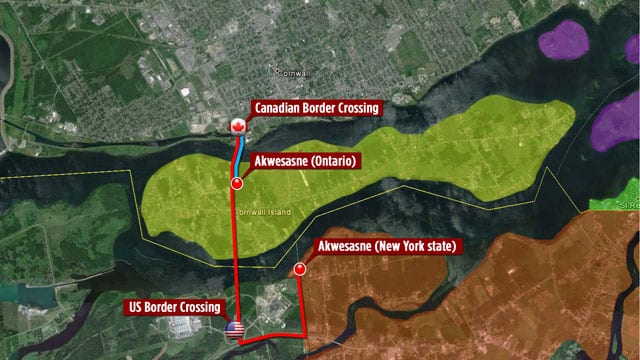
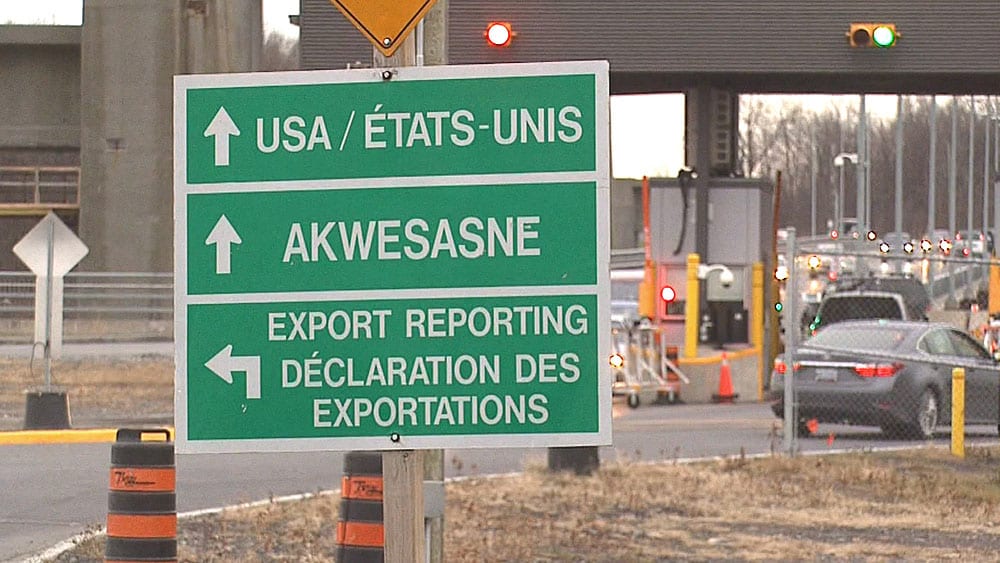

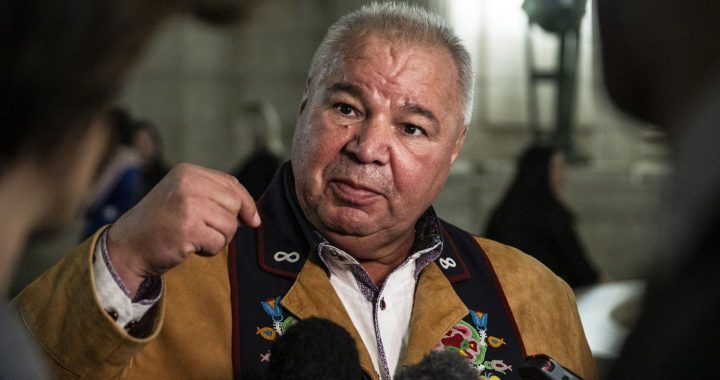
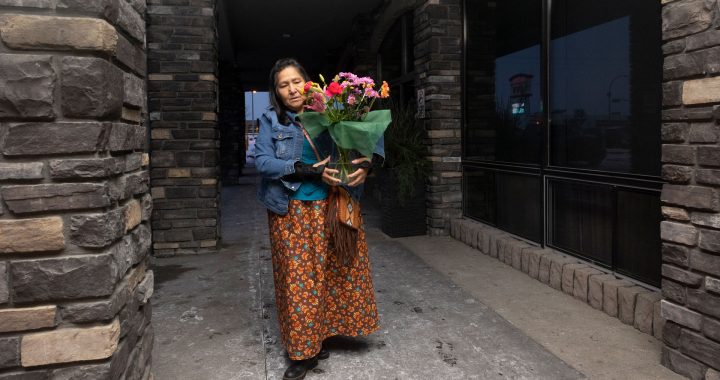
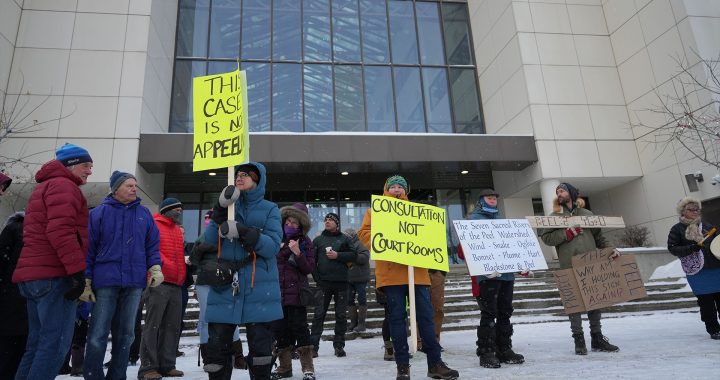
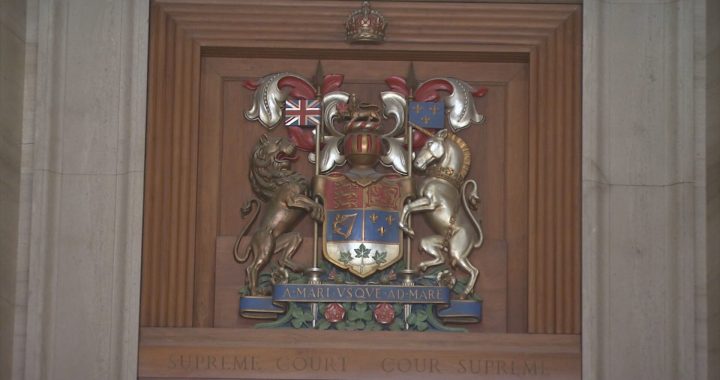
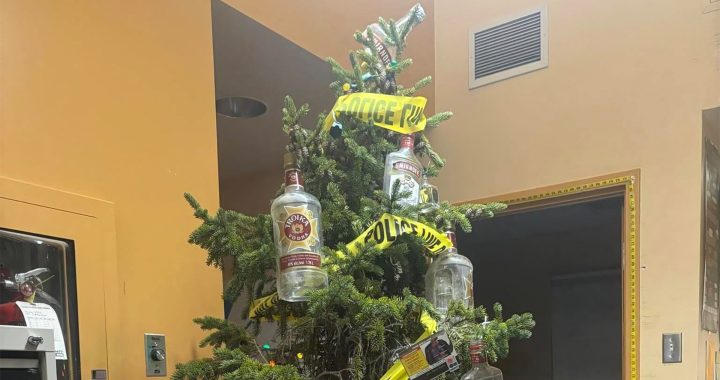
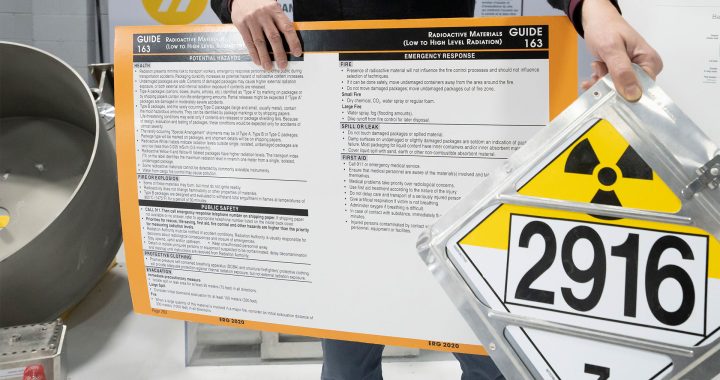

Nice to have a more efficient smooth border-crossing system for First Nations peoples. However, there are flaws in the Indian Act registry. Prior to Bill C-31, non-First Nation women who married Indian Act registered First Nation men acquire legal recognition as Status Indians. Even when these couples divorced/separated the non-First Nation woman would legally continue to have Indian Act status. In some cases these status non-First Nation people would remarry non-First Nation men, and in some cases could legally pass Indian Act status unto non-First Nation children and grandchildren. Post Bill C-31, the situation changed somewhat but all non-First Nation people who acquired Indian Act status continued to legally maintain that distinction. I think U.S. Homeland Security should have requirements that all status card bearers produce additional information to verify Indian bloodline. They already do this with blood-quantum letters which are required for Natives born in Canada to live or work in the United States. People who claim to be Native must document that they are at least 50 percent Native. Currently any status card bearer can produce a Indian status card at border security crossings and without question is granted entry. It is assumed all Indian Act status card bearers are in fact a bloodline Native person. I believe as a Native bloodline person that I have the right to cross the border freely. I do not agree that someone with a status card who is not a bloodline Native person shares the same border crossing rights as me. Well, there it is, my opinion and view on a delicate complex subject.
This is great. Progress in the right direction.